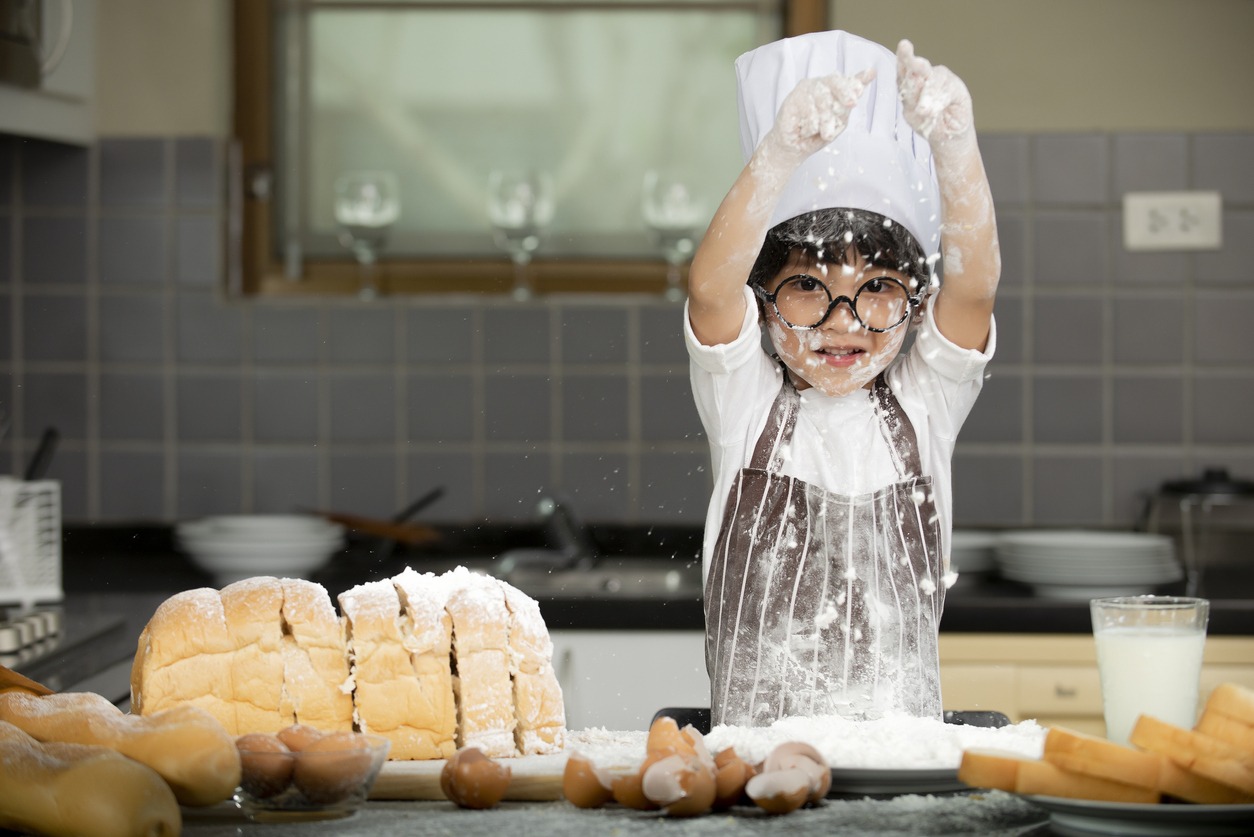When the power goes out because of a storm, hurricane, or any number of other reasons, parents are faced with an additional challenge in addition to the one they are already dealing with. It’s also important to keep kids occupied during a power outage due to safety concerns.
During times of severe weather or any other event that could result in a loss of power, it is common for communication to be impaired. We do not want our children to run away, nor do we want them to be afraid of current circumstances. There are a variety of approaches that we can take to maintain order and composure among everyone present.
1. Providing Explanations
Because there is a possibility that some younger children have never been through a power outage before, this would be the ideal time to explain what is going on. Especially urban youths tend to take things like electricity and the internet for granted. They are likely to experience frustration, confusion, and even anger if they are unable to obtain either or both of these easily. If a hurricane or storm is currently occurring, you may want to discuss with the children what exactly this natural occurrence is and how one ought to behave in such circumstances.
It’s possible that tales for a younger audience about hurricane shelters, safety procedures, and other educational aspects could be fascinating and enlightening at the same time. Having said that, you do want to keep this as straightforward as possible, particularly if there are younger children in the room with you. You don’t want to terrify them any further or make things more complicated for them. This explanation could also include displaying a map in front of the children and pointing out the locations on the map that have the highest probability of being struck by hurricanes or storms. Show them where you are in relation to the hurricane zone and explain what will take place if the power is knocked out or a hurricane makes landfall.
2. Practice
Especially for younger children, it is a good idea to practice what you will do if the power goes out in an area that experiences frequent power outages. It is essential to first explain the power outage situation; doing so enables children to mentally prepare for the situation rather than being taken aback by it. Involving your child in any preparation work for power outages is a fantastic idea because it acquaints them with the tools to use and the procedures to follow if there is a loss of electrical power.
Think of it like an evacuation exercise that children would go through at school. Put out the lights and ensure that everyone understands where to locate the backup lights, how to safeguard appliances and entrances in your houses, how to contact grown-ups if they are not at home, the area of a designated family gathering spot, and how to follow some other special instructions that may be present. Turn out the lights. Your children must be familiar with important phone numbers and addresses, including 911, your number, and the numbers of other members of your family or a close friend. Make the process of memorization into a game or a quiz to make it seem more fun for the children and to help them learn the material more quickly. Children will feel more at ease with any procedures they are required to observe if there is a power outage if they first practice those procedures during a mock power outage.
3. Include Them in Preparations
If a power outage or hurricane is predicted in advance, including those individuals in your efforts to get ready for challenging times may be a good idea. If they are of an appropriate age, have them assist you in checking the shutters, putting together safety kits, and locating a secure location for their animals.
The last point is particularly significant in this context. It is unlikely that the children will experience feelings of boredom or frustration if they are occupied with ensuring the well-being of another living being. When it comes to packing the kits, you could provide the participants with a checklist and then play a race to see who can pack their bag with all of the necessary items first.
4. Stories
Everyone has a story to tell, whether it’s something they dreamed up on their own or simply recounting an exciting event that happened at school. This might turn out to be a wonderful chance for you to build stronger relationships with your children and get to know them better. You could also share stories with them about your childhood. Also, bring out the old photo albums; there’s no reason to let them sit around collecting cobwebs until the next family get-together.
5. Camping
Gather up some cushions, sleeping bags, and blankets, and construct a fort in the living room of your house. Alternatively, you could move all the couches out of the way and set up a tent. In either case, you and your children can act as though you are on a camping trip by telling scary stories to each other and cuddling up close.
6. Cooking
If you are vigilant about supervising them, even very young children are capable of assisting you in the kitchen. Find some simple recipes, and then start them off by teaching them some important life skills. If you only have an electric stove, you may have to make do with the fireplace or fire up the grill; however, the experience of learning how to survive in harsh conditions will be well worth it.
Make some hot dogs on a stick, pancakes, or whatever else you can find in the freezer, and fry it up on the grill. These are some ideas for things to cook. You could even bake a cake or some cookies if you have a gas oven that is operational and at your disposal. The anticipation of a tasty reward is one of the most powerful motivators that can be used with children, and the enticing aroma will keep the environment happy and upbeat.
7. Organize a Puppet Show
Who would have thought that a flashlight could be so entertaining? You can keep the children entertained by creating a variety of shadow puppet animals on the wall, such as butterflies and rabbits, wolves and reindeer, and everything in between. Simply move the flashlight around the room until you come across a wall that would serve as an excellent backdrop for your performance.
This provides almost instant gratification in the form of entertainment. Since the effect of shadow puppets is enhanced by darkness, if the power outage occurs in the evening, this is an excellent way to kill some time before going to bed. There are a lot of simple shadow puppet tricks that can be learned in just a few seconds each. You can also make the activity into a craft project by cutting out designs from different types of paper; this is a good option if you want something more complicated.
8. Craft Making
Crafting typically does not require the use of any form of power. It’s not only a productive way to kill time, but it’s also entertaining, and at the end of the day, you’ll have something tangible to show for your efforts. Take out some paper and color it, make a paper chain that goes through each room in the house, or investigate whether or not you can make something out of empty cartons. It’s also possible that now is the best time to pick up some new skills. Your child might find new interests by experimenting with paper mâché, origami, or even by learning a new painting technique. Experiment with a variety of approaches and find out what works best.
9. Get Social
If it’s during the day, invite some of your friends and neighbors over, particularly those who have kids about the same age as yours. After that, pass the time together by playing games while the power is out.
10. Verify for Dangers
Even though having fun is the best thing that children can do while there is a power outage, parents must teach their children about the dangers that power outages present. Have a conversation with your children about the dangers posed by fire and carbon monoxide poisoning, as well as the steps they can take to protect themselves from these hazards.
Make sure that they are aware that they should never use portable generators, charcoal grills, or camp stoves inside of a building, and that they should never leave candles or any other open flame unattended. It is important to teach the fundamentals of these safety measures to your child as soon as they are old enough to comprehend what they are learning.
Because of this, they will be better prepared to identify potentially dangerous situations that arise during power outages and to respond appropriately. Additionally, it helps them feel more prepared for the power outage by providing them with the tools to keep themselves safe, which in turn increases their sense of security and comfort during the outage.
Even if there is no electricity, there are several things you can do to keep your child occupied. The aforementioned suggestions should, with any luck, spark some ideas for interesting and healthy activities that reduce the amount of time spent in front of screens, even on typical days.


